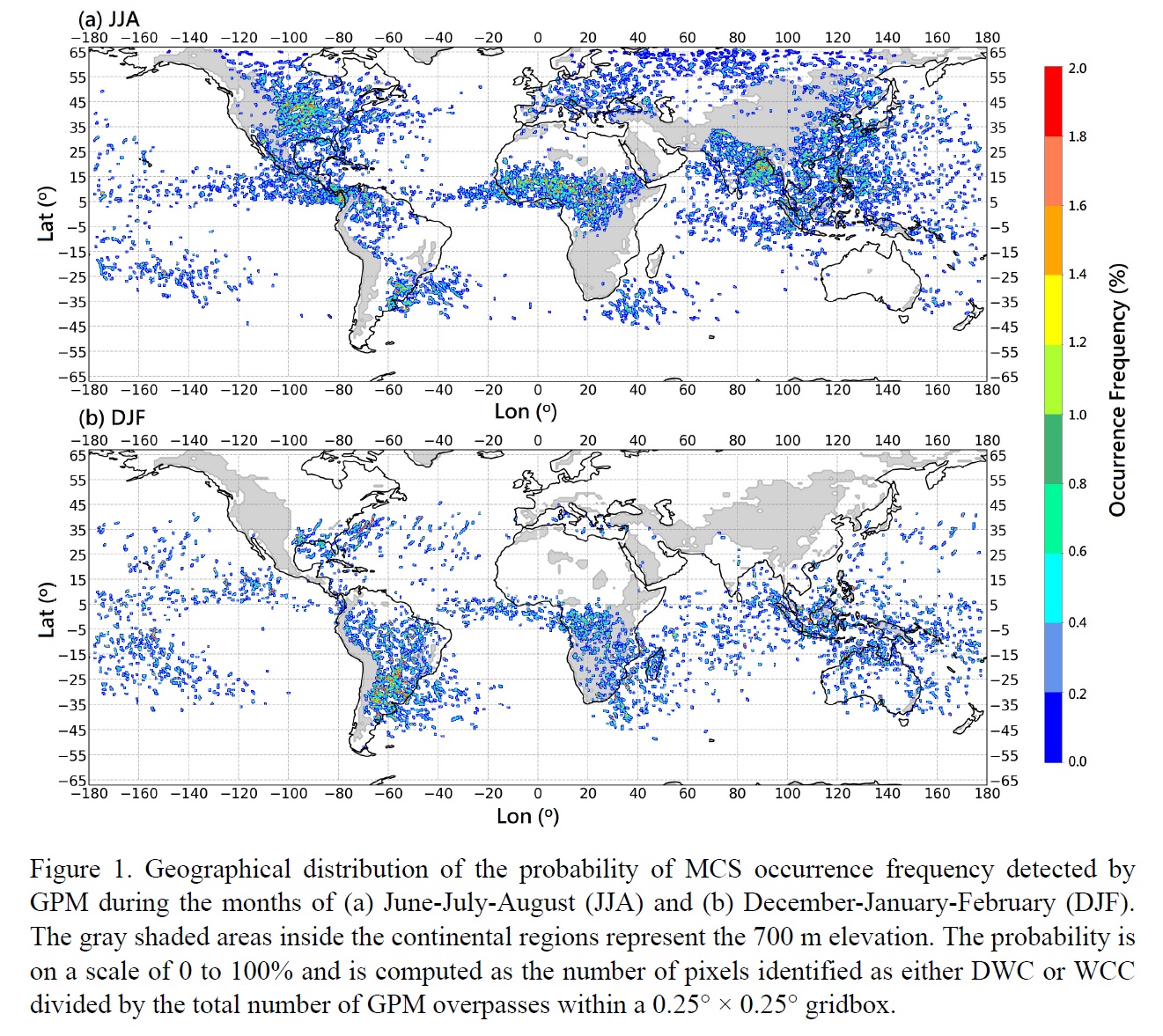Graphical Abstract
Wang, J., R. A. Houze, Jr., J. Fan, S. R. Brodzik, Z. Feng, and J. C. Hardin, 2019: The detection of
mesoscale convective systems by the GPM Ku-band spaceborne radar. J. Meteor. Soc. Japan, 97, 1059-1073.
Special Edition on Global Precipitation Measurement (GPM): 5th Anniversary,
https://doi.org/10.2151/jmsj.2019-058
Graphical Abstract with highlights
Plain Language Summary: Mesoscale Convective Systems (MCSs) play an important role in the global hydrological cycle. This study hypothesizes that the GPM-detected echo objects of Wide-Convective-Core (WCC) and Deep-Wide-Convective-Core (DWC) are parts of MCSs, because they satisfy both the criteria of excessive cloud coverage and active convective activity by which MCSs are commonly defined. Through the comparison with a detailed MCS tracking database developed over the Continental United States (CONUS), results show more than 70% of the WCC and DWC objects can be validated by the MCS tracking database. Based on the GPM detection, a global view of MCS distribution is presented.
Highlights:
- GPM observed radar reflectivity is in a good agreement with the Next Generation Weather Radar (NEXRAD) over the CONUS.
- More than 70% of GPM-detected WCC and DWC echo objects can be validated as MCSs by the MCS tracking database developed over the CONUS.
- A global MCS distribution is presented based on the GPM detection, and the “hot-zones” of MCS occurrence revealed in previous studies are further confirmed.







